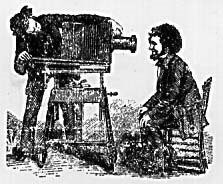Sardar and Loon commence by stating that from the very beginning, British Cultural Studies is more than British...it is "internationalist"(p.40). The New Left was created since it was deemed virtually impossible for non-english speaking colonialists to break into the British Cultural sect. These colonial intellectuals brought a new perspective and enlightenment to the British Left establishment, creating the New British Left.
Sardar and Loon continue by naming some of these colonial intellectuals who brought about the diversity and political dimention seen in British Cultural Studies today. French philosopher Althusser and his thoughts on Structuralism, the Italian Antonio Gramsci, a believer in the Marxist movement. The idea to be brought from this section of the book is that "a series of movements, groups and individuals have absorbed and manipulated his theories (Gramsci)-cultural studies jbeing just one example (p.51).
Munns and Rajan go into greater depth in defining the specific goals and beliefs of such renound intellectuals as Althusser, Foucault, Freud, Saussure, Levi-Strauss...All of these men provided theories that were critiqued and have been adapted within their culture specific context, be it British, American, European...
1. TERM: Sign...Munns and Rajan talked about sign systems and how they help the theories to produce meaning of the subjects trying to be conveyed. The New Keywords defines sign as "a broad class of objects, events, or marks that are used or interpreted to convey some meaning"(p.321). Therefore the theories used by these intellectuals are explained using sign systems...they are used to define language, cultural experiences, encompassing socio-economic, phychological, historical, political, biological, ethnic and religious realities (p.82).
2.http://en.wikipedia.org/wiki/Semiotics
I thought posting the Semiotics definition from wikipedia could be useful to go along with the term sign. Semiotics refers more to the way in which the systems of signs are transmitted, meaning anything from codes, coined phrases, etc...and is seen to extend on the definition of language. It goes beyond linguistics in the sense that it can adapt itself to mean certain things given its subject matter (medium or sensory modality).
3.http://ec.europa.eu/culture/portal/index_en.htm
I just thought this was an interesting site to look at. We have talked alot about the specific theories and beliefs of theorists over the past 100 years. To look at the cultures that are present in Europe and how people express their cultures is endless and imaginative at the same time. I guess it just led me to think that it is amazing that there are people who actually attempt to define why people act the way they do and represent themselves in certain ways.
Anita
announcements
This blog was created by and for students in an Introduction to Cultural Studies class at the University of Washington. Through an investigation of urban experience and representation--in theory, in graphic novels and in our own "readings" of Seattle's University District--we considered the formation and history of cultural studies as an (anti)discipline, with a special emphasis on the questions, "What does cultural studies do, and how do you do cultural studies?"
If you'd like to know more about the class, the blog or our U-District artifact project, please contact Gabrielle Dean: gnodean@u.washington.edu.
If you'd like to know more about the class, the blog or our U-District artifact project, please contact Gabrielle Dean: gnodean@u.washington.edu.
Subscribe to:
Post Comments (Atom)
blog archive
-
▼
2008
(92)
-
▼
April
(35)
- Identity in City of Glass
- History of Origins: Race Studies
- History of Origins: Gender Studies
- History of Origins: Gender Studies
- History of Origins: America
- History of Origins: Race Studies
- History of Origins: Gender Studies
- History of Origins: Race Studies
- History of Origins: Race Studies
- History of Origins: Media and Science
- History of Origins: Media and Science
- History of Origins: Gender Studies
- History of Origins: Media and Science
- History of Origins: European Theory
- History of Origins: European Theory
- History of Origins: European Theory
- History of Origins: European Theory
- History of Origins: European Theory
- History of Origins: America
- History of Origins: European Theory
- History of Origins: America
- History of Orgins: European Theory
- History of Origins: European Theory
- History of Origins: Great Britain
- History of Origins: Great Britain
- Cultural Studies in Britain
- Cultural Studies in Britain
- History of Origins: General
- History of Origins: General
- History of Origins: General
- History of Origins: General
- "Orientalism"
- Are You an Author?
- "Paris, Capital of the 19th Century"
- READING: A WEB MODEL
-
▼
April
(35)

No comments:
Post a Comment